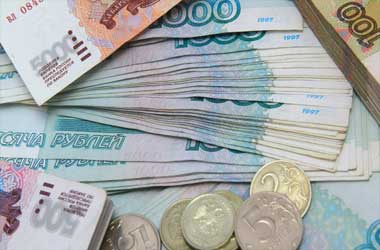 The Eurozone private sector recorded its weakest performance in March, as countries continue to grapple with coronavirus outbreak. Private sector enterprises fared much worse than 2008 financial crisis, according to IHS Markit survey results.
The Eurozone private sector recorded its weakest performance in March, as countries continue to grapple with coronavirus outbreak. Private sector enterprises fared much worse than 2008 financial crisis, according to IHS Markit survey results.
The flash composite output index declined to 31.40 in March from 51.60 in the earlier month. A reading below 50 indicates contraction.
The reported data mirrors the steepest monthly decline in private sector activity since the organization started publishing data in July 1998. Economists had anticipated a reading of 38.80.
The service sector, specifically, faced the maximum brunt as travel and restaurant sectors lost huge chunk of business.
The services Purchasing Managers’ Index dropped to 28.40 in March from 52.60 in the prior month. Economists anticipated reading of 39.0.
The manufacturing industry also recorded a steep decline. The manufacturing PMI declined to a 92-month low of 44.80 in March, from 49.20 in the earlier month.
The reported figures also missed economists forecast of 39.0. The March PMI indicates that the economy will contract at a quarterly rate of roughly 2%, according to Chris Williamson, chief business economist at IHS Markit.
The economists also stated that there is a likely chance for the sluggishness to intensify in case more stringent rules are implemented to ward off the virus.
France and Germany has recorded huge economic contraction this month as governments are taking tougher initiatives to prevent the spread of COVID-19.
In March, private sector activity in France contracted at the steepest rate in almost 22 years.
The composite output index decreased to a historical low of 30.20 in March from 51.90 in February. Economists had anticipated a reading of 39.80.
The decline in economic activity was broad-based, but service providers were worst impacted with steepest decline since publishing of the data began in May 1998.
The services PMI hit a record low of 29.0 in March, compared with 52.60 in the earlier month. The anticipated reading was 42.0.
The manufacturing PMI, in the same period, declined to an 86-month low of 42.90, compared with 49.70 in the earlier month. Economists had anticipated a reading of 40.0.
Germany’s private sector recorded its largest contraction since 2009. The composite output index plummeted to 37.20 in March, from 50.70 in the previous month.
It was the lowest reading since February 2009 and also below the 40.6 predicted by economists.
The sharp decline in activity was led by the service sector, where businesses underlined the impact of measures to limit the spread of COVID-19 disease.
The services PMI declined to a historical low of 34.50 in March, from 52.50 in February. Economists anticipated reading of 42.30.
The manufacturing PMI reading hit a eleven year low of 45.70 in March, a decrease from 48 in February.
The reading missed economists forecast of 39.60. As per Markit, the remaining countries in the Eurozone recorded a further steeper decrease than recorded in Germany and France.




